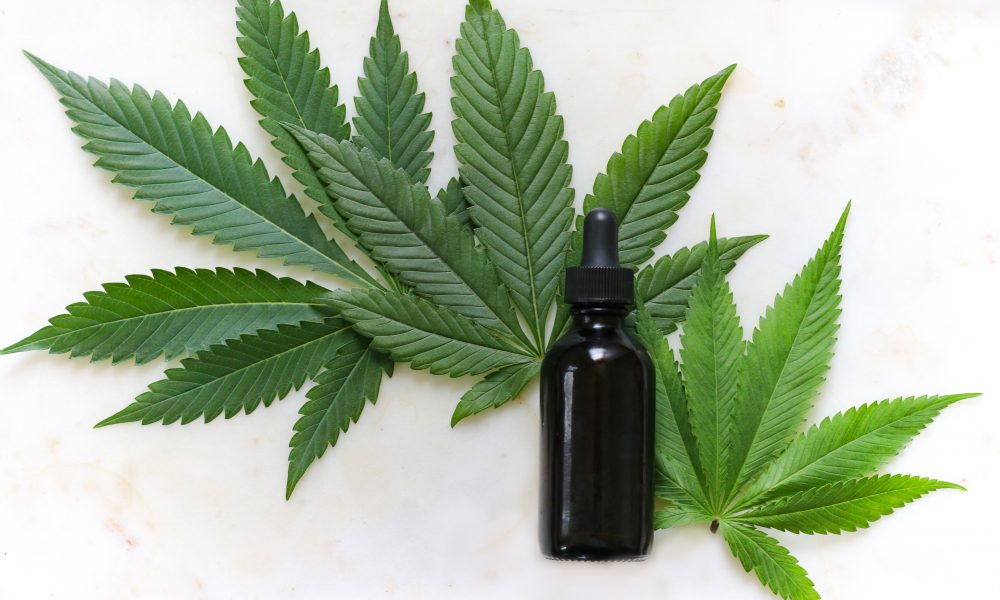A Republican congressman told the head of the Food and Drug Administration (FDA) on Wednesday that the agency’s failure to enact regulations for CBD is one of several problems that is “disrupting public confidence” in its abilities.
Rep. Andy Harris (R-MD) said during a House Appropriations subcommittee hearing that “controversies swirl around the agency.” One of those controversies is the fact that FDA hasn’t identified a “regulatory pathway for cannabidiol oil after five years and millions of dollars of investments.”
Harris, a vocal opponent of marijuana legalization who chairs the subcommittee, told FDA Commissioner Robert Califf that there’s a “need to quickly remedy what is not working in the agency, institute needed reforms and restore public confidence.”
Califf did not offer a direct response to Harris’s comments on CBD at the hearing.
FDA announced in January that it will not be creating rules to allow the marketing of CBD as dietary supplements or food items, leaving the massive industry without regulations despite repeated calls for administrative action from lawmakers, advocates and stakeholders.
Following a “careful review” of the non-intoxicating cannabinoid, FDA said it reached the conclusion that the existing regulatory pathways that are in place for other dietary supplements and food additives will not work for CBD. Instead, the agency said that wants to “work with Congress on a new way forward.”
House Oversight and Accountability Committee Chairman James Comer (R-KY) said in January that he was preparing to confront FDA over their failure to enact regulations for hemp-derived products like CBD.
Top officials in the agency have previously signaled that they felt it may take work from Congress to adequately regulate CBD.
At a House Appropriations subcommittee hearing last year, FDA’s Califf recognized that the agency had moved slowly with rulemaking for CBD in the food supply, stating that the situation “looks pretty much the same in terms of where we are now” as compared to when he first worked on the issue in 2016.
He said the FDA has taken steps to research the safety profile of cannabinoids to inform future rules, but he also punted the criticism about inaction to Congress, saying he doesn’t feel that “the current authorities we have on the food side or the drug side necessarily give us what we need to have to get the right pathways forward.”
“We’re going to have to come up with something new,” Califf said. “I’m very committed to doing that.”
—
Marijuana Moment is tracking more than 1,000 cannabis, psychedelics and drug policy bills in state legislatures and Congress this year. Patreon supporters pledging at least $25/month get access to our interactive maps, charts and hearing calendar so they don’t miss any developments.
Learn more about our marijuana bill tracker and become a supporter on Patreon to get access.
—
There have been repeated efforts by congressional lawmakers to fill the regulatory gap for the non-intoxicating cannabinoid.
For example, Reps. Morgan Griffith (R-VA) and Angie Craig (D-MN) reintroduced a pair of bills this month meant to provide a pathway for the regulation of hemp derivatives like CBD as dietary supplements and food and beverage additives.
Griffith and Rep. Brett Guthrie (R-KY) sent a letter to Califf last year, demanding answers over the continued lack of regulations for CBD for those purposes.
Griffith and other bipartisan lawmakers sent a separate, related letter to the FDA commissioner in August. They expressed frustration over the “completely insufficient response” the agency provided in response to their bill calling for hemp-derived CBD to be permitted and regulated as a food additive.
FDA’s announcement that it wouldn’t be regulating CBD came days after the agency released finalized guidance that focuses on developing cannabis-based drugs and outlined the process and unique considerations for scientists when it comes to hemp and marijuana.
FDA also recently touted its role helping a state agency crack down on a company selling delta-8 THC gummies that they said are linked to “serious adverse events.”
In November, the agency sent warning letters to five companies that sell foods and beverages containing CBD.
The agency didn’t specify why it targeted those particular five companies out of the many more that market similar cannabidiol-infused consumables, but it said that they sell products “that people may confuse for traditional foods or beverages which may result in unintentional consumption or overconsumption of CBD.”
All of this comes in the background of a major task for FDA: Conducting a scientific review into marijuana, at the direction of President Joe Biden, to aid in an assessment of its federal scheduling. FDA’s recommendation won’t be binding, but officials say they expect the Drug Enforcement Administration (DEA) to produce a scheduling recommendation that’s consistent with their findings about its risks and benefits.
Hawaii Health Department Says Legalizing Psychedelics Is A ‘More Meaningful’ Step Than Creating A Study Group
Photo courtesy of Kimzy Nanney.
Read the full article here


